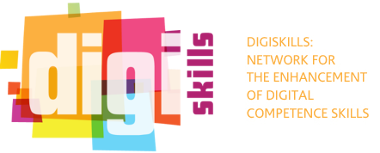Wiki training scenarios, a Pedagogical Framework fostering Wiki uses
| Rate | |||
| Criteria Evaluation | |||
transferable adaptability innovative acceptability impact effectiveness availability creativity collaborative
EL
ES
HR
DE
FR
HU
PL
View the translated version |
|
EL
ES
HR
DE
FR
HU
PL
View the translated version |
|
EL
ES
HR
DE
FR
HU
PL
View the translated version |
|
EL
ES
HR
DE
FR
HU
PL
View the translated version |
|
EL
ES
HR
DE
FR
HU
PL
View the translated version |
|
EL
ES
HR
DE
FR
HU
PL
View the translated version |
|
EL
ES
HR
DE
FR
HU
PL
View the translated version |
|
The good teaching practice at a glance
applied
Any
Any
As instruction becomes more student‐centred, the framework provides opportunities for student-oriented collaboration: They have the opportunity to learn expressing their questions, pursuing lines of inquiry together, teaching each other’s and seeing how others are learning. in this case, the instructor act as a facilitator when needed.
2015-06-05 09:00:00 - 2015-06-05 09:00:00
Detailed description
As instruction becomes more student‐centred, the framework provides opportunities for student-oriented collaboration: They have the opportunity to learn expressing their questions, pursuing lines of inquiry together, teaching each other’s and seeing how
Challenges include creating strong online communities, as well as dealing with copyright and licensing issues. Wikis can be private or public. They sometimes have a limited lifetime, being closed down and no longer used as a wiki at the end of the semester. They are sometimes inherited from one generation of students to another. In many cases, they are used for tasks (writing, feedback, etc.) that could also have been accomplished with other tools, such as a blog. Challenges include overcoming resistance to working collaboratively, and lack of technical knowledge and/or user friendly wiki software.
The wiki‐based learning scenarios provide students with a context for working collaboratively in order to achieve a common learning task. Through a wiki environment, students will coordinate their efforts in order to achieve a specific task. To do so, they co‐write and co‐edit web pages, as well as communicate in an asynchronous way through the wiki platform. The expected outcome of the scenarios is the shared construction of knowledge among students, as well as the creation of a tangible learning outcome, i.e. the wiki pages. Collaborative learning activities include collaborative writing, group projects and joint problem solving. The application of wiki‐based learning scenarios imply a change in the roles of the instructor and students.
Our solution was to adopt a scenario-based approach. In order to design meaningful wiki‐based learning activities, teachers and trainers should consider many aspects. Indeed, the wiki should be perceived as embedded in a learning scenario that takes into account the different parameters of the teaching / learning context.
While planning their learning activities, teachers should take into account the specific characteristics of the learning audience, the specific learning objectives, the evaluation approach, the time‐space resources and the technical requirements. Moreover, the step by step organization of the learning activities (i.e. structure of the activities before, during and after the wiki) should be planned.
Wiki or collaborative documents
| Country of origin | Switzerland |
| Language of the practice | |
| Website related | http://www.wikinomics-project.eu/wikinomics/the-wikinomics-toolbox/the-traini... |
| Status of the practice | Final |
| Download full practice desciprion |
- ICT enabled learning - Using digital resources for face-to-face classroom practice & for online learning/blended classroom practice
About the author
| Name of contributor | Thanasis |
| Affiliation of contributor | Researcher |
| Institution where this practice was implemented | Ynternet.org research foundation |
| Contact e-mail | thanasis.priftis@ynternet.org |
- Log in to post comments


